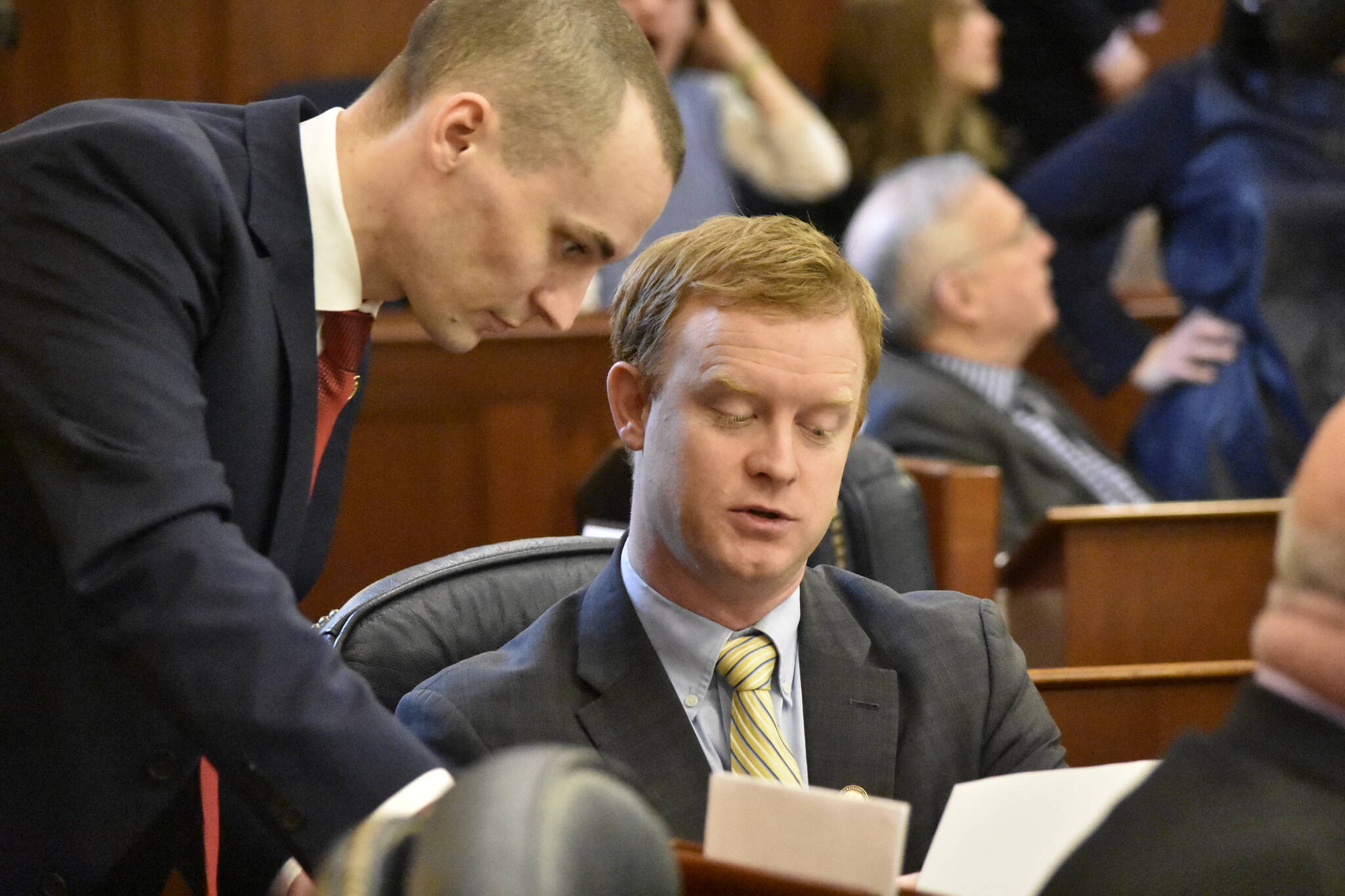Rep. David Eastman, R-Wasilla, isn’t on trial with members of one of the two private militias charged with seditious conspiracy related to the Jan. 6 insurrection at the U.S. Capitol. But the verdict in their case may well influence the outcome of civil lawsuit seeking to have him disqualified from serving in Alaska’s Legislature.
Last January, Oath Keepers’ founder Stewart Rhodes and 10 others were indicted for conspiring to use force to prevent, hinder or delay “the lawful transfer of presidential power.” In early August, Randall Kowalke, a resident in Eastman’s district, filed a lawsuit alleging Eastman is a member of the Oath Keepers. He argued the disloyalty clause in Alaska’s Constitution prohibits anyone “who aids or belongs to” such groups from holding state office. The case is set to go to trial in December.
Eastman didn’t participate in the insurrection. The day after it happened, he condemned those who did, and properly called for them to be “be speedily identified and put before a jury of their peers for public trial.”
That was a year before members of the Oath Keepers were indicted. He’s since admitted he received a lifetime membership certificate after giving them a donation in 2009. And he won’t deny that he remains a member and won’t disavow support for the group.
In an Anchorage Superior Court hearing two weeks ago, Judge Jack McKenna found those facts give Kowalke “a clear probability of success” in proving Eastman is still a member. And based on the “limited record” presented in the case, his argument that “the Oath Keepers are an organization that advocates the overthrow of the United States government” may also prevail.
A guilty verdict in their seditious conspiracy trial will certainly support Kowalke’s case. At this point though, Rhodes and his crew are presumed innocent. Eastman remains eligible to hold office. And until both cases are decided in court, it would be wise for the rest of us to refrain from concluding otherwise.
That’s part of the due process rights guaranteed by the Fifth and Fourteenth Amendments. Indeed, McKenna decided not to order Eastman’s name be removed from November’s general election ballot because he hasn’t had a chance to properly defend himself.
It also speaks to a troubling irony that Eastman doesn’t seem to grasp.
Clearly, his predicament is directly tied to the action of Rhodes and his co-defendants. Like them, he’s been presuming massive fraud occurred during the presidential election. Which equates to denying the due process rights of the officials who certified the election results.
Of course, it all began with Donald Trump’s baseless pronouncement on election night. “Frankly, we did win this election,” he said with several million votes yet to be counted in crucial swing states. “This is a major fraud on our nation.”
After Joe Biden was declared the winner, Trump’s campaign and his surrogates filed more than 60 lawsuits in those states. In not one did they present credible evidence of fraud. Some of the attorneys even admitted they weren’t claiming it occurred.
They lost all but two cases, neither of which changed the outcome in those states. By Dec.1, Trump’s own attorney general admitted “we have not seen fraud on a scale that could have effected a different outcome in the election.”
Had Trump conceded defeat then, there wouldn’t have been an insurrection on Jan. 6. And no subsequent federal investigation resulting in the seditious conspiracy charges against the Oath Keepers.
Instead, they face up to 20 years in prison if convicted. Their defense is they acted in anticipation of Trump invoking the Insurrection Act, which per Rhodes’ attorney, Trump could have done based on “what he perceived as a conspiracy to deprive a class of persons in several states of their voting rights.”
‘Perceived’ implies the truth that Trump never had credible evidence of election fraud.
But as Eastman wrote two days after the insurrection, the “political narrative” that Biden won the election is “utterly uncompelling.” Which means that even though he condemned the violence on Jan. 6, he had passively given aid to the Oath Keepers cause of preventing Congress from certifying Biden’s victory.
Now Eastman’s political future is tied to their fate. And he’s got no one to blame but himself if he’s disqualified from serving in Alaska’s Legislature.
Rich Moniak is a Juneau resident and retired civil engineer with more than 25 years of experience working in the public sector.


